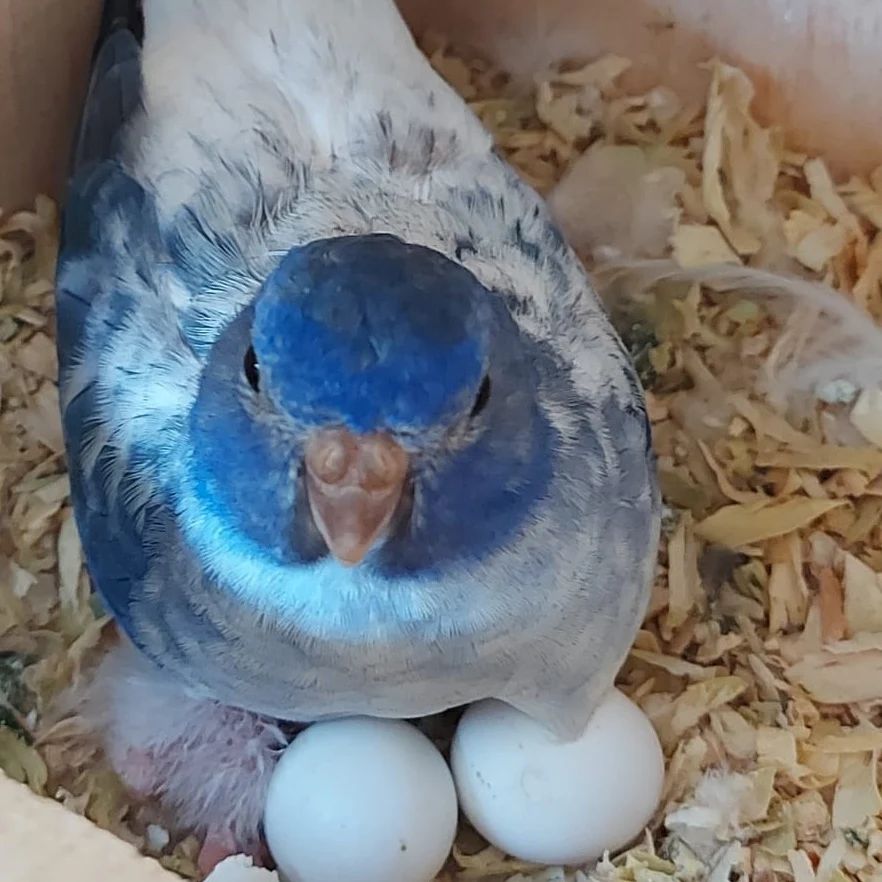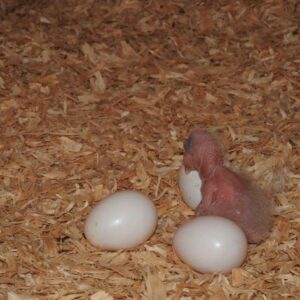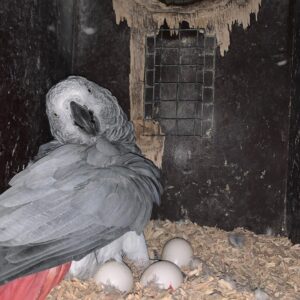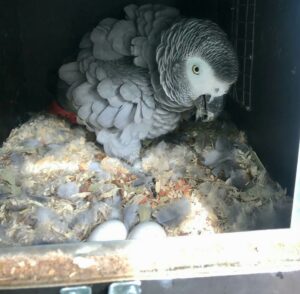Have you ever dreamed of raising your own parrot from the very beginning? The allure of watching a tiny egg transform into a beautiful, vibrant companion is undeniably magical. But where exactly can you find fertilized parrot eggs to start this incredible journey?
The quest for fertilized parrot eggs can be both exciting and daunting. With legal considerations, ethical implications, and the delicate nature of the process, it’s crucial to approach this endeavor with care and knowledge. In this blog post, we’ll explore the ins and outs of purchasing fertilized parrot eggs, guiding you through the legal landscape, reputable sources, and essential factors to consider. We’ll also delve into preparation for incubation and discuss alternatives for those who might be hesitant about the egg route. Let’s embark on this feathered adventure together!
Understanding the Legal Aspects of Buying Fertilized Parrot Eggs
Laws and Regulations in Different Countries
When considering purchasing fertilized parrot eggs, it’s crucial to be aware of the legal landscape, which can vary significantly from country to country. Many nations have strict regulations governing the trade of exotic birds and their eggs, primarily to protect endangered species and prevent illegal wildlife trafficking.
Country | General Stance | Key Regulations |
|---|---|---|
USA | Restrictive | CITES, Lacey Act |
UK | Regulated | Wildlife and Countryside Act |
Australia | Highly Restricted | Environment Protection and Biodiversity Conservation Act |
Ethical Considerations
Beyond legal compliance, there are ethical aspects to consider when buying fertilized parrot eggs:
Conservation impact
Welfare of parent birds
Sustainability of breeding practices
Necessary Permits and Documentation
To legally purchase and possess fertilized parrot eggs, you may need:
Import/export permits
Health certificates
Proof of captive breeding
Species-specific documentation
Always research and obtain the required permits before making a purchase to ensure compliance with local and international laws. Failure to do so can result in hefty fines or legal consequences.
Now that we’ve covered the legal and ethical aspects, let’s explore reputable sources for obtaining fertilized parrot eggs.
Reputable Sources for Fertilized Parrot Eggs
Now that we understand the legal aspects, let’s explore where you can find fertilized parrot eggs from trustworthy sources. It’s crucial to obtain eggs from reputable dealers to ensure the health and well-being of the future chicks.
A. Exotic Pet Stores
Exotic pet stores can be a convenient option for purchasing fertilized parrot eggs. These establishments often have connections with breeders and may offer a variety of species. However, it’s essential to research the store’s reputation and ask about their egg sourcing practices.
B. Avian Veterinarians and Bird Clubs
Avian veterinarians and local bird clubs are excellent resources for finding fertilized parrot eggs. They often have networks of reputable breeders and can provide valuable advice on egg selection and care.
Avian veterinarians can offer:
Referrals to trusted breeders
Health checks for purchased eggs
Guidance on incubation techniques
Bird clubs provide:
Access to experienced parrot enthusiasts
Information on local breeders
Educational resources on parrot breeding
C. Online Marketplaces and Forums
Online platforms can connect you with a wide range of egg suppliers. However, exercise caution when using these sources and always verify the seller’s credentials.
Platform | Pros | Cons |
|---|---|---|
Specialized bird forums | Expert community, detailed information | Requires membership, may have limited listings |
General marketplaces | Wide variety, competitive prices | Higher risk of fraudulent sellers, less specialized knowledge |
D. Specialized Breeders and Aviaries
Specialized breeders and aviaries are often the most reliable sources for fertilized parrot eggs. They focus on specific species and can provide detailed information about the eggs’ lineage and care requirements.
When choosing a breeder or aviary:
Check their certifications and licenses
Ask for references from previous customers
Inquire about their breeding practices and facilities
Discuss post-purchase support and guarantees
By carefully considering these reputable sources, you can increase your chances of obtaining healthy, viable fertilized parrot eggs. Next, we’ll examine the crucial factors to keep in mind when making your purchase.
Factors to Consider When Purchasing Fertilized Parrot Eggs
When venturing into the world of parrot breeding, there are several crucial factors to consider before purchasing fertilized eggs. Let’s explore these important aspects to ensure you make an informed decision.
Breeding History and Genetic Health
The genetic health and breeding history of the parent birds are paramount when selecting fertilized parrot eggs. Consider the following:
Lineage information
Health certifications
Previous breeding success rates
A reputable breeder should provide detailed information about the parent birds’ health and breeding history.
Price Range and Associated Costs
The cost of fertilized parrot eggs can vary significantly depending on the species and rarity. Here’s a breakdown of potential expenses:
Expense Category | Description | Estimated Cost Range |
|---|---|---|
Egg price | Cost per fertilized egg | €50 – €1000+ |
Incubation equipment | Incubator, humidity controller, etc. | €200 – €500 |
Shipping | Specialized transport | €50 – €200 |
Veterinary care | Health checks and potential treatments | €100 – €500 |
Remember to factor in these additional costs when budgeting for your breeding project.
Shipping and Handling Procedures
Proper shipping and handling are critical for the viability of fertilized eggs. Ensure your supplier:
Uses appropriate packaging materials
Maintains correct temperature and humidity during transit
Provides clear instructions for egg handling upon arrival
Species Availability and Rarity
Different parrot species have varying levels of availability and rarity, which can impact both price and breeding difficulty. Research the specific species you’re interested in to understand:
Breeding seasons and cycles
Conservation status and legal requirements
Specialized care needs during incubation and hatching
By carefully considering these factors, you’ll be better prepared to purchase fertilized parrot eggs and embark on your breeding journey. Next, we’ll discuss the essential steps in preparing for the incubation process.
Preparing for Incubation
Now that you’ve acquired your fertilized parrot eggs, it’s crucial to prepare for the incubation process. This step is vital for ensuring the successful hatching of healthy chicks.
A. Monitoring and maintaining egg health
Monitoring egg health is essential throughout the incubation period. Here are key aspects to consider:
Daily inspections: Check eggs for cracks, discoloration, or unusual odors
Candling: Use a bright light to observe embryo development weekly
Turning: Rotate eggs 3-5 times daily to prevent embryo sticking
B. Creating the ideal incubation environment
The incubation environment plays a crucial role in egg development. Consider these factors:
Factor | Ideal Range |
|---|---|
Temperature | 37.2°C – 37.5°C (99°F – 99.5°F) |
Humidity | 50-60% (increases to 65-70% during hatching) |
Ventilation | Gentle air circulation without drafts |
C. Essential equipment for hatching
To ensure successful incubation, you’ll need the following equipment:
Incubator with temperature and humidity controls
Hygrometer for measuring humidity
Egg turner (automatic or manual)
Candling light for monitoring embryo development
Thermometer for accurate temperature readings
With proper preparation and the right equipment, you’ll be well-equipped to incubate your parrot eggs successfully. Next, we’ll explore alternatives to buying fertilized eggs for those considering different options in parrot breeding.
Alternatives to Buying Fertilized Eggs
Now that we’ve explored the process of purchasing fertilized parrot eggs, let’s consider some alternatives that might better suit your needs or ethical considerations.
A. Participating in breeding programs
Breeding programs offer a unique opportunity to engage with parrot conservation and reproduction:
Collaborate with experienced breeders
Learn hands-on breeding techniques
Contribute to species preservation efforts
Pros | Cons |
|---|---|
Educational experience | Time-consuming |
Support conservation | May require travel |
Access to expert guidance | Limited species availability |
B. Purchasing young parrot chicks
Buying young parrot chicks can be a rewarding alternative:
Avoid incubation challenges
Bond with the bird from an early age
Choose from a wider variety of species
C. Adopting rescue parrots
Adopting rescue parrots is a compassionate choice that offers several benefits:
Provide a loving home to a bird in need
Often more cost-effective than purchasing eggs or chicks
Adult birds may already have some training
By considering these alternatives, you can find the best path to parrot ownership that aligns with your goals and values. Each option presents unique advantages and challenges, allowing you to make an informed decision based on your circumstances and preferences.




